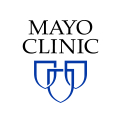Gold Sodium Thiomalate in Treating Patients With Advanced Non-Small Cell Lung Cancer
| Status: | Completed |
|---|---|
| Conditions: | Lung Cancer, Cancer |
| Therapuetic Areas: | Oncology |
| Healthy: | No |
| Age Range: | 18 - 120 |
| Updated: | 10/10/2018 |
| Start Date: | January 25, 2007 |
| End Date: | February 14, 2012 |
A Phase I Dose Escalation Study of the PKC Inhibitor, Aurothiomalate (ATM) in Patients With Advanced Non-Small Cell Lung Cancer
RATIONALE: Gold sodium thiomalate may stop the growth of tumor cells by blocking some of the
enzymes needed for cell growth.
PURPOSE: This phase I trial is studying the side effects and best dose of gold sodium
thiomalate in treating patients with advanced non-small cell lung cancer.
enzymes needed for cell growth.
PURPOSE: This phase I trial is studying the side effects and best dose of gold sodium
thiomalate in treating patients with advanced non-small cell lung cancer.
OBJECTIVES:
- To determine the maximum tolerated dose of gold sodium thiomalate in patients with
advanced non-small cell lung cancer.
- To describe the toxicities associated with this treatment.
- To describe any preliminary evidence of biologic activity.
- To further assess the correlation between PKCι expression and the antitumor effects of
gold sodium thiomalate.
- To study the association of clinical (toxicity and/or tumor response or activity) with
pharmacokinetic/pharmacodynamic parameters.
- To describe anti-proliferative activity of gold sodium thiomalate through
3-deoxy-3-[^18F]-fluorothymidine positron emission tomography imaging.
OUTLINE: This is a dose-escalation study of gold sodium thiomalate.
Patients receive gold sodium thiomalate intramuscularly on days 1, 8, 15 and 22. Treatment
repeats every 4 weeks for 3 courses in the absence of disease progression or unacceptable
toxicity. Patients then receive gold sodium thiomalate once every 4 weeks until a total
cumulative dose of 1 gram is delivered.
Blood samples are collected at baseline and prior to therapy in weeks 3, 5, 7, 9, and 11.
Samples are analyzed by mass spectometry for pharmacokinetics. Paraffin-embedded tumor tissue
samples are analyzed for PKC_l expression and antitumor activity. Antiproliferative effects
of gold sodium thiomalate are analyzed by 3-deoxy-3-[^18F]-fluorothymidine positron emission
tomography imaging.
- To determine the maximum tolerated dose of gold sodium thiomalate in patients with
advanced non-small cell lung cancer.
- To describe the toxicities associated with this treatment.
- To describe any preliminary evidence of biologic activity.
- To further assess the correlation between PKCι expression and the antitumor effects of
gold sodium thiomalate.
- To study the association of clinical (toxicity and/or tumor response or activity) with
pharmacokinetic/pharmacodynamic parameters.
- To describe anti-proliferative activity of gold sodium thiomalate through
3-deoxy-3-[^18F]-fluorothymidine positron emission tomography imaging.
OUTLINE: This is a dose-escalation study of gold sodium thiomalate.
Patients receive gold sodium thiomalate intramuscularly on days 1, 8, 15 and 22. Treatment
repeats every 4 weeks for 3 courses in the absence of disease progression or unacceptable
toxicity. Patients then receive gold sodium thiomalate once every 4 weeks until a total
cumulative dose of 1 gram is delivered.
Blood samples are collected at baseline and prior to therapy in weeks 3, 5, 7, 9, and 11.
Samples are analyzed by mass spectometry for pharmacokinetics. Paraffin-embedded tumor tissue
samples are analyzed for PKC_l expression and antitumor activity. Antiproliferative effects
of gold sodium thiomalate are analyzed by 3-deoxy-3-[^18F]-fluorothymidine positron emission
tomography imaging.
DISEASE CHARACTERISTICS:
- Histologically confirmed advanced non-small cell lung cancer
- No known standard therapy for disease that is potentially curative or definitely
capable of extending life expectancy
- No symptomatic or worsening CNS metastases despite optimal therapy
PATIENT CHARACTERISTICS:
- ECOG performance status 0-2
- Life expectancy ≥ 12 weeks
- ANC ≥ 1,500/µL
- Platelet count ≥ 100,000/µL
- Total bilirubin ≤ 2 times upper limit of normal (ULN)
- AST ≤ 3 times ULN (5 times ULN if liver involvement)
- Creatinine ≤ 1.2 times ULN
- Hemoglobin ≥ 9.0 g/dL
- Not pregnant or nursing
- Negative pregnancy test
- Fertile patients must use effective contraception
- Must be willing to provide blood and tissue samples
- No uncontrolled infection
- No New York Heart Association class III or IV heart disease
- No known allergy to gold sodium thiomalate
PRIOR CONCURRENT THERAPY:
- Recovered from acute, reversible effects of prior chemotherapy regardless of interval
since last treatment
- No prior chemotherapy within the past 3 weeks
- No prior mitomycin C or nitrosoureas within the past 6 weeks
- No prior immunotherapy within the past 3 weeks
- No prior biologic therapy within the past 3 weeks
- No prior radiotherapy within the past 3 weeks
- No prior radiotherapy to > 25% of bone marrow
- No other concurrent chemotherapy, immunotherapy, radiotherapy, or any ancillary
therapy considered investigational (i.e., utilized for a non-FDA-approved indication
and in the context of a research investigation)
- No concurrent prophylactic colony stimulating factors
We found this trial at
3
sites
Click here to add this to my saved trials
Mayo Clinic Cancer Center The Mayo Clinic Cancer Center is a National Cancer Institute-designated comprehensive...
Click here to add this to my saved trials
Mayo Clinic Scottsdale Mayo Clinic Arizona was the second Mayo practice to be established outside...
Click here to add this to my saved trials

